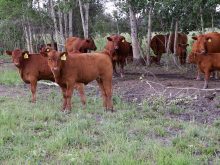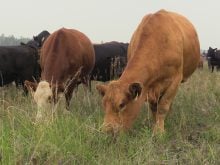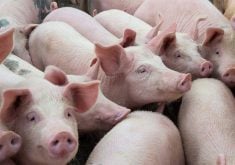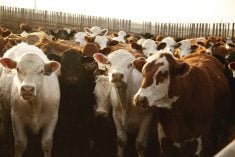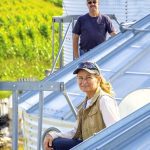For some , biotechnology leaves a sense of wonder at the achievements of science at the cellular level.
For others, the flavor of bioengineered foods leaves a bad taste in the mouth.
Those diverse opinions were laid out at a University of Calgary conference called Designer Genes at the Dinner Table.
“The sort of changes that we make with genetic engineering are probably the same sorts of changes we have been making with traditional techniques,” said plant breeder Graham Scoles of the University of Saskatchewan.
Read Also
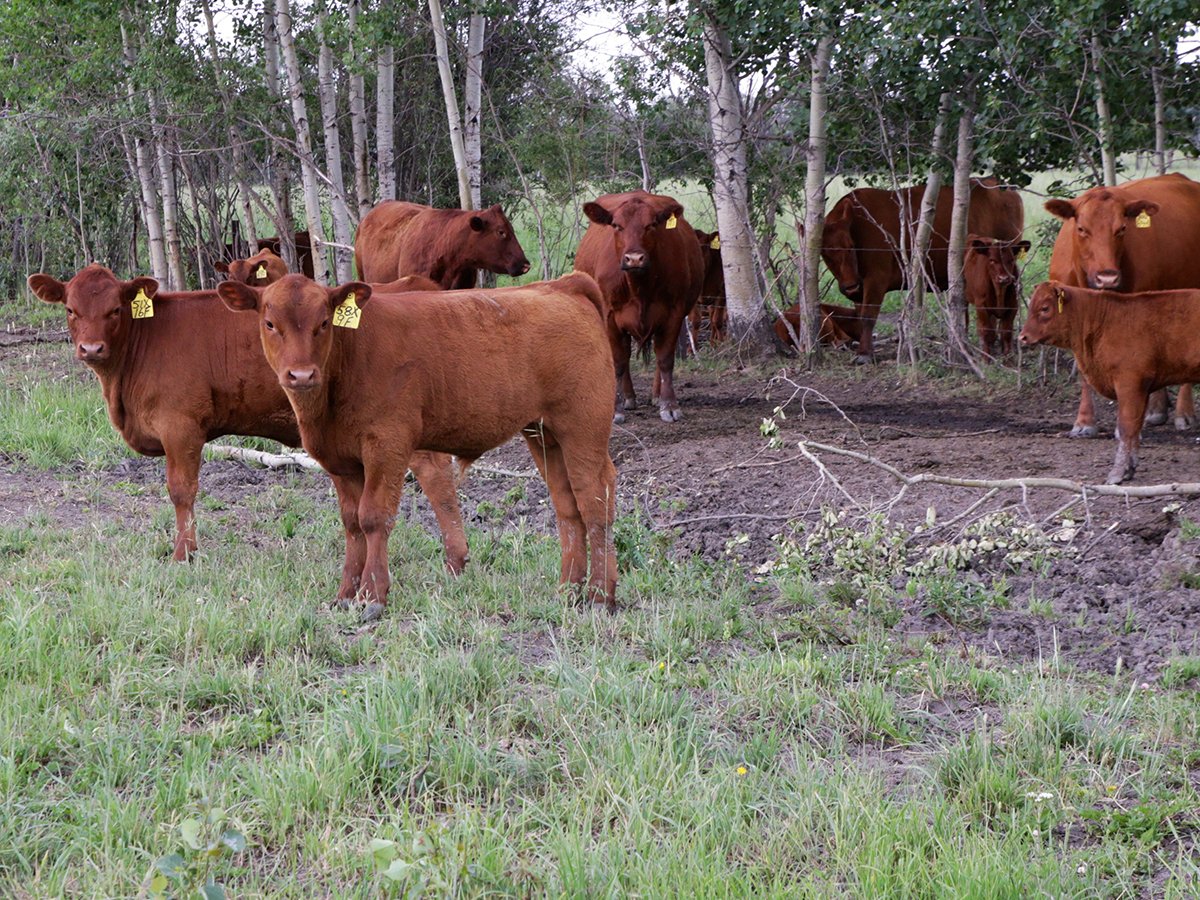
Feeder market continues the climb
For the week ending Aug. 30, Western Canadian feeder cattle markets traded $4-8 per hundredweight higher on average.
“The difference with genetic engineering is that we clearly define what we are doing in terms of DNA changes,” he said.
To understand genetic engineering people need a better understanding of agriculture and how food is produced, he said.
The evolution of biotechnology is dizzying.
“Rapid changes of agricultural technology makes it difficult for society to accept new technology,” said Peter Pauker of the federal department of foreign affairs.
“We can’t absorb them as fast as they come at us,” he said.
The conference was modeled after a European style of forum where the public questions experts. After hearing the evidence, they sift it and write an opinion, which is submitted to the agricultural industry government and media.
The 15-member panel was an eclectic group of students, farmers, a grocer, teachers, engineers, a mechanic and a postal worker. They were selected from about 300 applicants.
The group asked questions on food safety, ethics, approval processes, labeling and trade agreements.
The experts ranged from an industry representative who favors biotechnology and defends the right to patent living organisms to a Vancouver dietitian who prefers organically produced food grown by local farmers.
Paul Mayers of Health Canada said each new product is scrutinized to ensure the claims made by the producer are true before it is released for public use.
The Canadian Food Inspection Agency is also involved.
A product may be approved for use, but the owners of the product are legally responsible for it if something goes wrong, said Stacy Charlton of the agency.
Government agencies also look at environmental impacts such as the threat to biodiversity and the creation of superweeds or volunteer plants that are almost impossible to remove from a field because pesticide resistance has developed.
Raphael Thierrin of the Canadian Environmental Network is suspicious of this technology.
Reduced use of pesticides may be good but other products like terminator genes that render seeds sterile handcuff a farmer because he has to buy new seed every year, he said.
Thierrin is concerned a handful of companies will control seed sales and only genetically modified seeds will available in a few years.
The food label issue was also high on the list of concerns.
Consumers need to make informed choices about the food they buy, said Corrine Eisler, a dietitian and a food safety advocate from Vancouver.
She wants labels to carry the country of origin, irradiation symbols, pesticide use and other technologies used to produce the food.
Proper labels can clear away worries for people who want information about the compounds in their food because of religious, political or health reasons.
Margaret Kenny of the Canadian Food Inspection Agency said mandatory and voluntary labeling is in place now for the health and safety of the public.
The question remains how much labeling is required so it is meaningful to an ordinary person.
The ethics of manipulating genes in plants and animals must be addressed, said two bioethicists.
Brewster Kneen, publisher of the environmental publication Ram’s Horn, said bioengineered foods have been forced on the market without invitation.
“How do we respect the integrity of a person or animal that is subjected to bioengineering?” he asked.
Government subsidizes the industry through research grants and there is a lack of public control in how the industry is managed, he said.
At one time, universities or Agriculture Canada handled complex research problems. Funding has been trimmed so much that they can no longer do that, said plant breeder Scoles.
“Today multinationals can dwarf most of what we have in the public institutions of Canada,” said Scoles.
Burleigh Trevor-Deutsch of BiotechCanada’s bioethics committee said bioengineered foods must be at least as safe as comparable nongenetically engineered food.
He also raised the moral issue about genetic manipulation of animals.
“There are benefits that can result that can be in ways that are not outrageous,” said Trevor-Deutsch.
Margaret Gadsy of AgrEvo, director of biotechnology, defended the large corporations’ presence in the industry. She also argued they are responsible in their work.
“We eat this food. We drink this water. We farm these farms. Big, bad industry does have a heart,” she said.
Despite its risks, biotechnology does not fit neatly into any trade agreements, said Peter Pauker of foreign affairs.
Control measures must be science based and should be regulated internationally, he said.



